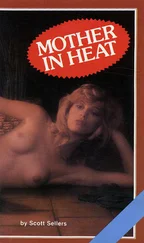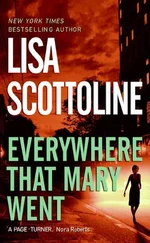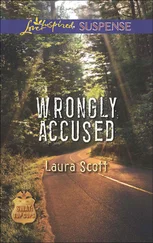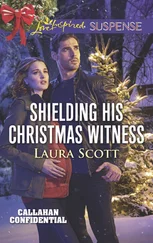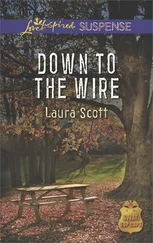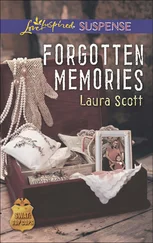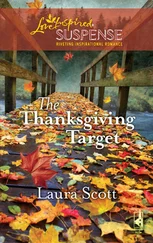Leroy Scott - To Him That Hath
Здесь есть возможность читать онлайн «Leroy Scott - To Him That Hath» — ознакомительный отрывок электронной книги совершенно бесплатно, а после прочтения отрывка купить полную версию. В некоторых случаях можно слушать аудио, скачать через торрент в формате fb2 и присутствует краткое содержание. Жанр: foreign_prose, Зарубежные любовные романы, на английском языке. Описание произведения, (предисловие) а так же отзывы посетителей доступны на портале библиотеки ЛибКат.
- Название:To Him That Hath
- Автор:
- Жанр:
- Год:неизвестен
- ISBN:нет данных
- Рейтинг книги:4 / 5. Голосов: 1
-
Избранное:Добавить в избранное
- Отзывы:
-
Ваша оценка:
- 80
- 1
- 2
- 3
- 4
- 5
To Him That Hath: краткое содержание, описание и аннотация
Предлагаем к чтению аннотацию, описание, краткое содержание или предисловие (зависит от того, что написал сам автор книги «To Him That Hath»). Если вы не нашли необходимую информацию о книге — напишите в комментариях, мы постараемся отыскать её.
To Him That Hath — читать онлайн ознакомительный отрывок
Ниже представлен текст книги, разбитый по страницам. Система сохранения места последней прочитанной страницы, позволяет с удобством читать онлайн бесплатно книгу «To Him That Hath», без необходимости каждый раз заново искать на чём Вы остановились. Поставьте закладку, и сможете в любой момент перейти на страницу, на которой закончили чтение.
Интервал:
Закладка:
David stared at the window, weak, dizzy. There was a momentary pang of bitterness that Morton should be so honoured, and he be what he was. Then the glow that had possessed him in the chapel flowed back upon him in even greater warmth. The window seemed to David, in his then mood, to be the perpetuation in glowing colour of Morton's influence. It seemed to throw forth into the street, upon the chance passer-by, the inspiration of Morton's life.
Yes, – his four years had counted!
Half an hour later he took his stand against the shadowed stoop of an empty mansion in Madison Avenue, and gazed across at a great square three-story stone house, with a bulging conservatory running along its left side – the only residence in the block that had re-opened for the autumn. All thought of Morton and the Mission was gone from him. His mind was filled only with the other great fear of his last four years. If she came out of the door he watched, if he glimpsed her beneath a window shade, then probably she still belonged in her father's house – was still unmarried.
A cold drizzle had begun to fall. He drew his head down into his upturned collar, and though his weakened body shivered, he noticed neither the rain nor the protest of his flesh. His whole being was directed at the house across the way. Slow minute followed slow minute. The door did not open, and he saw no one inside the windows. His heart beat as though it would shake his body apart. The sum of four years suspense so weakened him that he could hardly stand. Yet he stood and waited, waited; and he realised more keenly than ever how dear she was to him – though to possess her was beyond his wildest dreams, and perhaps he might not even speak to her again.
At length a nearby steeple called the hour of ten. Presently a carriage began to turn in towards the opposite sidewalk. David, all a-tremble, his great suspense now at its climax, stepped forth from his shadow. The carriage stopped before the Chambers home. He hurried across the street, and a dozen paces away from the carriage he stooped and made pretense of tying his shoe-lace; but all the while his eyes were on the carriage door, which the footman had thrown open. First a man stepped forth, back to David, and raised an umbrella. Who? The next instant David caught the profile. It was Mr. Chambers. After him came an ample, middle-aged woman, brilliantly attired – Mrs. Bosworth, Mr. Chambers's widowed sister, who had been living with him since his wife's death.
A moment later Mr. Chambers was helping a second woman from the carriage. The umbrella cut her face from David's gaze, but there was no mistaking her. So she still lived in the house of her father!
She paused an instant to speak to the footman. For a second a new fear lived in David: might she not come with her father to her father's house, and still be married? But at the second's end the fear was destroyed by the conventional three-word response of the footman. David watched her go up the steps, her face hidden by the umbrella, watched her enter and the door close behind her. Then, collapsed by the vast relief which followed upon his vast suspense, he sank down upon the stoop, and the three words of the footman maintained a thrilling iteration in his ears.
The three words were: "Thank you, Miss ."
CHAPTER II
A CALL FROM A NEIGHBOUR
The next morning David was awakened by the ringing of a gong. He tumbled out of bed in order to be ready for the march to breakfast at half past six; and he had begun to dress before it dawned upon him that he was a free man, and that the ringing was a prank a four-year habit had played upon him – a prank that, by the way, was to be repeated every morning for many a week to come.
He slipped back into bed, and lay there considering what he should first do. He had to find work quickly, but he felt his four walled years had earned him a holiday – one day in which to re-acquaint himself with freedom. So, after he had eaten, he felt his way down the dark, heavy-aired stairways, stepped through the doorway, and then paused in wonderment.
All was as fresh, as marvellous, as yesterday. The narrow street was a bustle of freedom – pounding carts, school-going boys and girls, playing children, marketing wives – no stripes, no lock-steps, no guards. And the yellow sun! He held his bleached face up to it, as though he would press against its sympathetic warmth; and he sucked deeply of the September air. And the colours! – the reds and whites and browns of the children, the occasional green of a plant on a window sill, the clear blue of the strip of sky at the street's top. He had almost forgotten there were colours other than stripes, the gray of stone walls, the black of steel bars.
And how calmly the streetful of people took these marvels!
At first he expected the people he threaded among to look into his face, see his prison record there, draw away from him, perhaps taunt him with "thief." But no one even noticed him, and gradually this fear began to fade from him. As he was crossing the Bowery, a car clanged at his back. He frantically leaped, with a cry, to the sidewalk, and leaned against a column of the elevated railroad – panting, exhausted, heart pounding. He had not before known how weak, nerveless, prison had made him.
He found, as he continued his way, that the sidewalk undulated like a ship's deck beneath his giddy legs; he found himself afraid of traffic-crowded corners that women and children unhesitatingly crossed; he found himself stopping and staring with intensest interest at the common-places of street life – at hurrying men, at darting newsboys, at rushing street cars and clattering trucks, at whatever moved where it willed. Old-timers had told him of the dazedness, the fear, the interest, of the first free days, but he was unprepared for the palpitant acuteness of his every sensation.
After a time, in Broadway, he chanced to look into a mirror-backed show-window where luminous satins were displayed. Between two smirking waxen women in sheeny drapery he saw that which brought him to a pause and set him gazing. It was his full-length self, which he had not seen these four years. The figure was gaunt, a mere framework for his shoddy, prison-made suit; the skin of his face snugly fitted itself to the bones; his eyes were sunken, large; his hair, which he uncovered, had here and there a line of gray. He was startled. But he had courage for the future; and after a few moments he said to himself aloud, a habit prison had given him: "A few weeks, and you won't know yourself."
As he walked on, the consciousness of freedom swelled within him. If he desired, he could speak to the man ahead of him, could laugh, could stand still, could walk where he wished, and no guard to report on him and no warden to subtract from his "good time." More than once, under cover of the rattle of an elevated train, he shouted at his voice's top in pure extravagance of feeling; and once in Fifth Avenue, forgetting himself, he flung his arms wide and laughed joyously – to be suddenly restored to convention by the hurried approach of a policeman.
All day he watched this strange new life – much of the time sitting in parks, for the unaccustomed walking wearied him. When he came to his tenement's door – flanked on one side by a saloon, and on the other side by a little grocery store before which sat a basket of shrunken potatoes and a few withered cabbages and beans, and in which supplies could be bought by the pennyworth – a hand fell upon his arm and a voice called out with wheezy cordiality: "Good evenin', friend."
David glanced about. Beside him was a loose bundle of old humanity, wrapped up in and held together by a very seedy coat and stained, baggy trousers frayed at the bottom. The face was covered with gray bristle and gullied with wrinkles. Over one eye hung a greasy green flap; the other eye was watery and red.
Читать дальшеИнтервал:
Закладка:
Похожие книги на «To Him That Hath»
Представляем Вашему вниманию похожие книги на «To Him That Hath» списком для выбора. Мы отобрали схожую по названию и смыслу литературу в надежде предоставить читателям больше вариантов отыскать новые, интересные, ещё непрочитанные произведения.
Обсуждение, отзывы о книге «To Him That Hath» и просто собственные мнения читателей. Оставьте ваши комментарии, напишите, что Вы думаете о произведении, его смысле или главных героях. Укажите что конкретно понравилось, а что нет, и почему Вы так считаете.

